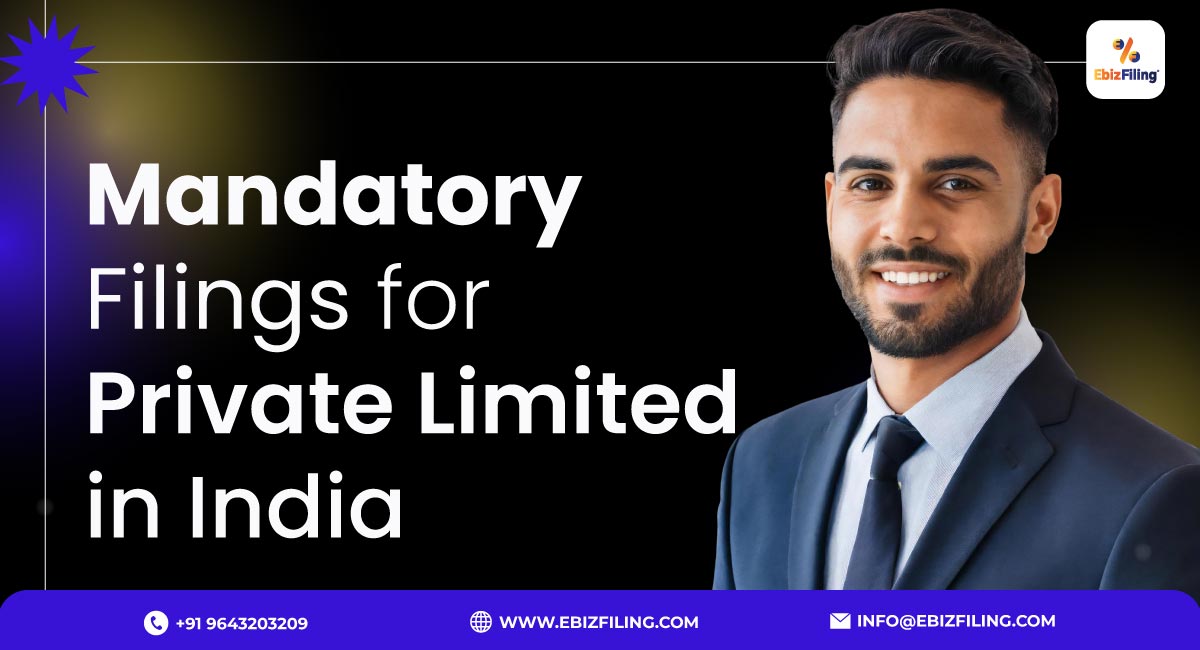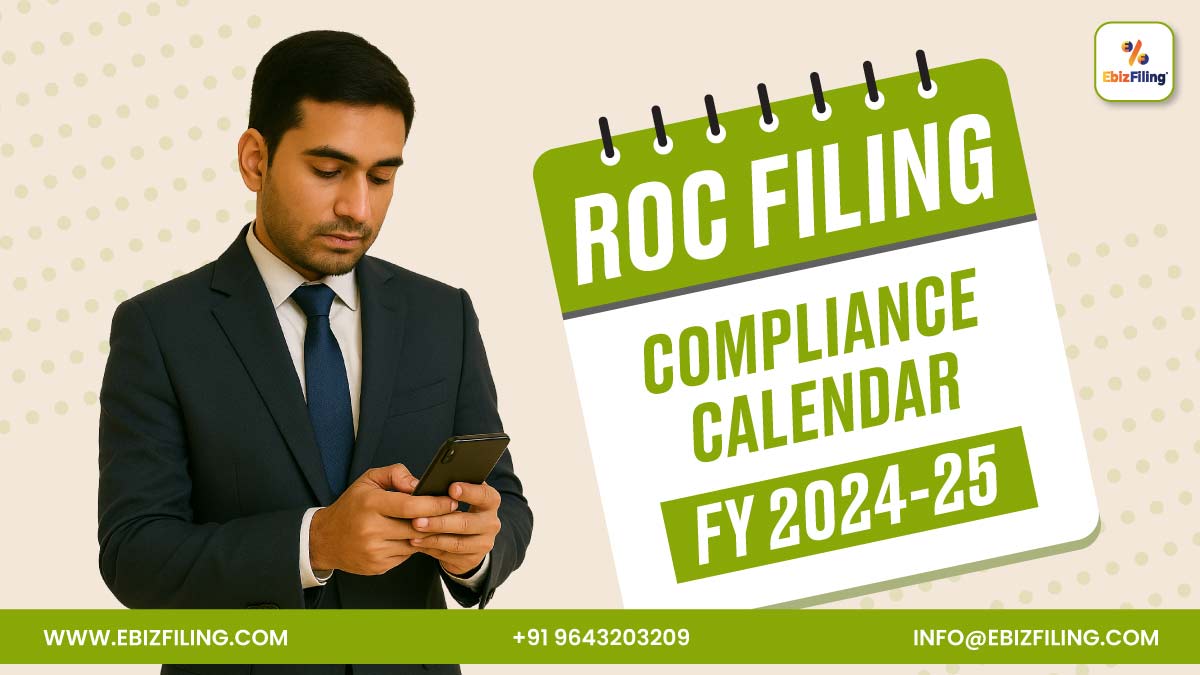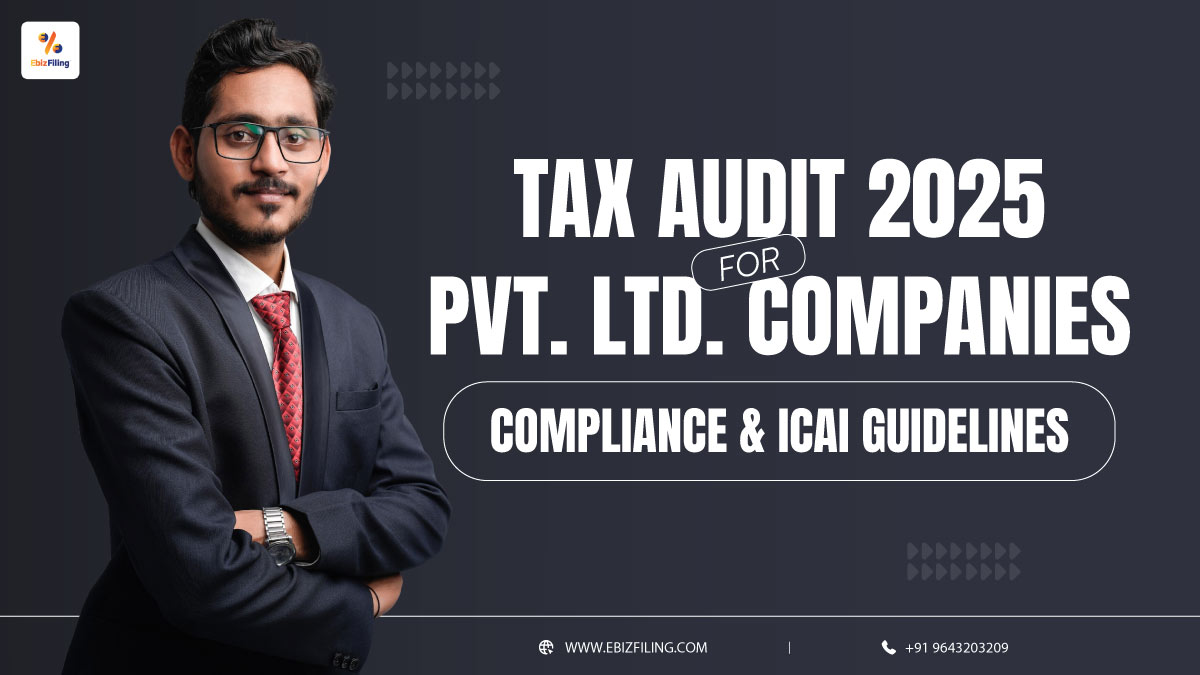
-
September 27, 2025
Mandatory Compliances for a Private Limited Company in India
Introduction
Running a Private Limited Company in India requires more than just incorporation. Every company has to follow certain statutory and regulatory requirements laid down by the Ministry of Corporate Affairs (MCA) and other authorities. These compliances ensure transparency, protect stakeholders, and keep the company in good legal standing. In this blog, we explain the key compliances for a Private Limited Company in India, their timelines, and the consequences of non-compliance.
Statutory Compliances for Private Limited Company in India
1. Board Meetings
-
First board meeting must be held within 30 days of incorporation.
-
Minimum of 4 board meetings every year with not more than 120 days gap.
-
Minutes of meetings must be properly maintained.
2. Annual General Meeting (AGM)
-
Mandatory for Public Companies, but not for most Private Companies unless specifically required in Articles of Association.
-
If applicable, AGM must be held within 6 months from the end of financial year.
3. Appointment of Auditor (Form ADT-1)
-
The first statutory auditor must be appointed within 30 days of incorporation.
-
Subsequent appointment is done for 5 years and must be filed with MCA in Form ADT-1.
4. Annual ROC Filings
Private Limited Companies must file the following with MCA every year:
-
Form AOC-4 – Filing of financial statements within 30 days of AGM.
-
Form MGT-7 / MGT-7A – Filing of annual return within 60 days of AGM.
-
Form DIR-3 KYC – Director KYC filing every year.
5. Statutory Audit of Accounts
-
Every company must get its accounts audited by a Chartered Accountant.
-
Audit Report must be filed with the ROC along with financial statements.
6. Income Tax Return Filing
-
All Private Limited Companies are required to file ITR regardless of profit or loss.
-
Due date: 30th September of every year (subject to government extensions).
7. Maintenance of Statutory Registers
Companies must maintain updated statutory registers, such as:
-
Register of members
-
Register of directors and key managerial personnel
-
Register of charges and loans
8. Event-Based Compliances
Apart from annual compliances, companies must also file event-based forms with MCA when certain changes occur:
-
Change in directors (Form DIR-12)
-
Change in registered office (Form INC-22)
-
Increase in authorized share capital (Form SH-7)
-
Allotment of shares (Form PAS-3)
Consequences of Non-Compliance
-
Heavy penalties for directors and the company.
-
MCA may strike off the company’s name.
-
Disqualification of directors for persistent default.
-
Difficulty in raising funds or expanding business.
Conclusion
Every Private Limited Company in India must comply with ROC filings, board meetings, income tax returns, and statutory audits. Staying compliant not only avoids penalties but also builds credibility and trust with investors and stakeholders. For seamless compliance management, companies can take professional assistance to track deadlines and file forms correctly.
FAQs
1. What are the annual compliances for a Private Limited Company in India?
They include filing financial statements (AOC-4), annual return (MGT-7/7A), director KYC (DIR-3 KYC), holding board meetings, and conducting statutory audit.
2. Is audit mandatory for every Private Limited Company?
Yes. Even if there is no business activity, every Private Limited Company must appoint an auditor and file audited financial statements.
3. What happens if a Private Limited Company does not file annual returns?
Non-filing attracts penalties per day of delay, potential strike-off by MCA, and disqualification of directors.
4. Do small or dormant companies also need to file compliances?
Yes, but dormant and small companies may have simplified forms such as MGT-7A for annual return.
5. Is it compulsory to hold AGMs in a Private Limited Company?
Not always. Most Private Companies are exempt unless specified in their Articles of Association.
6. Can a Private Limited Company file ITR without revenue?
Yes. Income Tax Return filing is mandatory even if there is no revenue or profit.
7. What is the penalty for late filing of AOC-4 or MGT-7?
MCA levies a penalty of ₹100 per day of default until the filing is completed.
8. When should Form ADT-1 be filed?
Form ADT-1 must be filed within 30 days of the auditor’s appointment.
9. Are event-based compliances equally important?
Yes. Changes such as appointment of directors, change of registered office, or increase in share capital must be reported to MCA.
10. Who is responsible for ensuring compliance in a Private Limited Company?
The Board of Directors is primarily responsible, though compliance professionals or company secretaries are often appointed for assistance.
Annual Filing for Pvt Ltd Company
File your annual compliances for pvt ltd company in simple steps with Ebizfiling
About Ebizfiling -













Hello Akshay Sugandhi,
Thankyou for your Inquiry!!
The team will get in touch with you soon. Meanwhile, you can get in touch with Ebizfiling at +919643203209 / info@ebizfiling.com